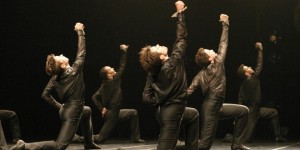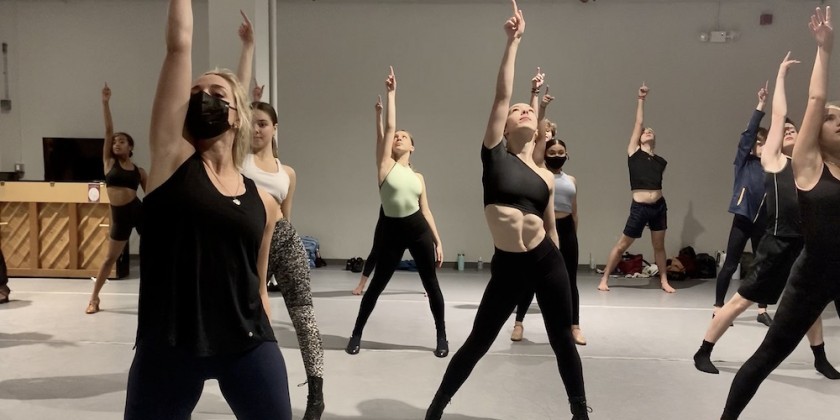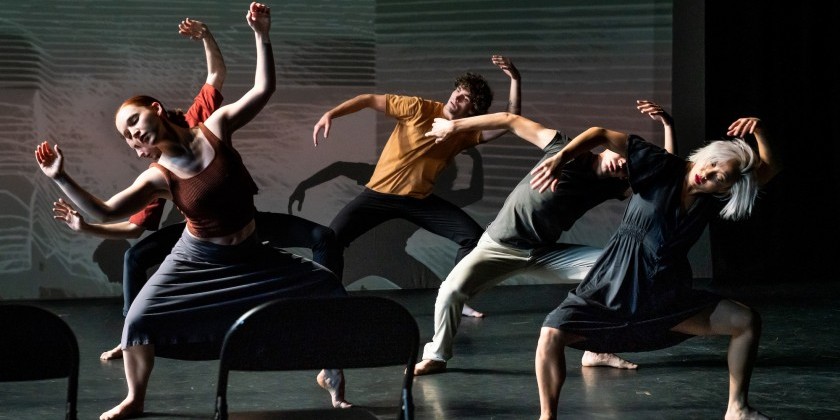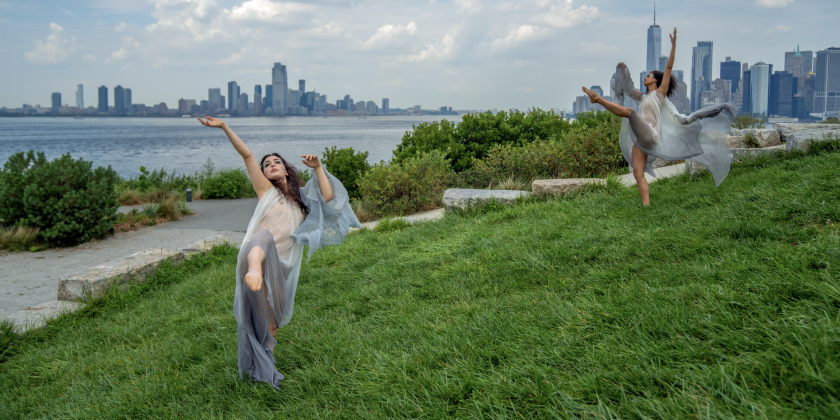45 Years of Radiant Splendor -Lar Lubovitch Dance Company

Lar Lubovitch Dance Company 45th Anniversary Season at The Joyce
October 8, 2013
Artistic Director: Lar Lubovitch
Dance Performance: Lar Lubovitch Dance Company
Lighting Designer: Jack Mehler: The Time Before the Time After, Vez; Craig Miller recreated by Jack Mehler: Duet from Concerto Six Twenty-Two; Clifton Taylor: Men’s Stories: A Concerto in Ruin
Erin Bomboy is @erinbomboy on Twitter
Known for creating pieces that sing with irresistible beauty and intelligent lyricism, Lar Lubovitch and his company celebrate 45 years at The Joyce Theater with two programs of past works and premieres.
Lubovitch’s signature movement — academic classicism rooted in breath, weight, and freedom — surges with a radiant splendor. Spotlighting crisp edges, expansive arm gestures, and streaming transitions, his choreography beguiles with an organic luster, girded by exacting craftsmanship.
The first portion of the A program opens with three duets fluctuating in expressive temperature.

Duet from Concerto Six Twenty-Two to Mozart’s “Concerto for Clarinet and Orchestra”— which premiered in 1986 at the height of the AIDS epidemic — showcases two men clad in white trousers and short-sleeved button-downs. Against a crystalline blue background, Attila Joey Csiki and Tobin Del Cuore deliberately pace toward each other from opposite sides of the stage. Their arms sweep to form interlocking arches, and they tenderly recline with fanning legs against one another. Csiki and Del Cuore end the way they began: apart, striding into their respective wings. Duet from Concerto Six Twenty-Two seemingly embodies an ancient Greek sensibility with its focus on harmony, rationality, and fraternity.

Vez, a reworking of an older piece sporting a brand-new score by Randall Woolf, features a sinuous, tactile duet between Nicole Corea and Clifton Brown. Attired in velour crop tops and leggings, their writhing bodies merge together against a black background sliced open by a pane of scarlet. This slithering union fuses entwined limbs, melting poses, and moments of sculptural stillness to form an oblique sensuality. The outstanding live accompaniment by vocalist Mellissa Hughes and guitarist Gyan Riley matches the leanly calibrated performances of Corea and Brown.
 Katarzyna Skarpetowska and Reed Luplau in The Time Before the Time After. Photo by Steven Schreiber.
Katarzyna Skarpetowska and Reed Luplau in The Time Before the Time After. Photo by Steven Schreiber.The Time Before the Time After, set to Stravinsky’s angular “Concertino for String Quartet,” highlights Reed Luplau and Katarzyna Skarpetowska aggressively grappling in nude costumes. Springing leaps, slashing legs, and hurtling dashes across the floor generate a complicated physical interaction, tinged with insanity. They grimace and jerk before culminating in a splattered détente with Skarpetowska stroking a prone Luplau.
The program’s second half presents the ever-popular Men’s Stories: A Concerto in Ruin, a rich tapestry for nine men, weaving together lush group montages and poignant solos. Scott Marshall’s original score acts as a sonic quilt, patching together scraps of classical music melodies and pop songs over everyday noises like shattering glass and airplane rumblings. Attired in black tailcoats trimmed in gold (later removed to reveal sheer black shirts), the men wheel and billow across the stage. These kaleidoscopic scenes, chockfull of dynamic interest and winding pathways, make us wish we could press pause. We want to halt this gush of scenarios and walk among the tableaus, appreciating every angle like at an art museum. Men’s Stories: A Concerto in Ruin is enigmatic — the ending features a dancer operating a puppet that shakes performers’ hands and waves at the crowd. Yet, it is fully recognizable in its handsome, idiosyncratic humanity.












